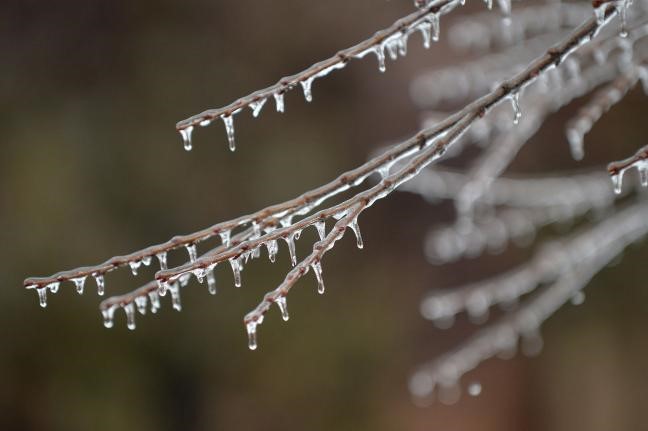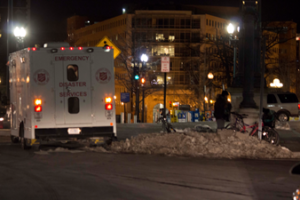


What to Do During a Winter Storm:
- Stay indoors as much as possible.
- Maintain ventilation when using kerosene heaters to avoid build-up of toxic fumes. Refuel kerosene heaters outside and keep them at least three feet from flammable objects.
- Keep your gas tank as full as possible during cold weather.
- Stay on main roads; avoid back roads and alleys.
- Avoid overexertion when shoveling snow. Overexertion can bring on a heart attack—a major cause of death during the winter.
- Listen to the radio or television for information.
- Dress for the weather. Wear several layers of loose fitting, lightweight, warm clothing rather than one layer of heavy clothing. Wear mittens, a hat and cover your mouth with a scarf to protect your lungs.
- Use safe heating sources—be aware of the fire danger from space heaters and candles; keep such devices away from all flammable materials.
- Turn space heaters off at night and when you are not at home.
- Install recommended smoke and carbon monoxide detectors (at least one of each per floor in your home).
- Do not use charcoal or other fuel-burning devices, such as grills, that produce carbon monoxide indoors.
- When outdoors, try to stay in dry and wind-protected areas.
- Drink plenty of non-alcoholic fluids and eat high calorie foods.
- Keep an Emergency Kit in your home and car.
- Clear snow and ice from sidewalks and steps next to your home and/or business. DC law requires residents to remove snow from sidewalks and steps within eight hours of daylight after the snow stops.
- DO NOT park your car on a Snow Emergency Route if a snow emergency is declared. Vehicles parked on these streets are subject to a $250 fine and/or towing. You can find information on the District Department of Transportation’s Snow Emergency Vehicle Towing Policy at http://ddot.dc.gov/page/snow-emergency-vehicle-towing-policy.
- When driving, take it slow. If you do lose traction, do not fight the skid—ease up on the brakes and steer toward where you want to go.
Making Sure You’re Prepared Before the Snow Falls.
Understanding the Weather Report
When listening to weather report, keep an eye out for the following terms:
- Winter Storm Watch: A winter storm is possible.
- Winter Storm Warning: A winter storm is occurring or will soon occur.
- Blizzard Warning: Sustained winds or frequent gusts to 35 miles per hour or greater and considerable amounts of falling or blowing snow (reducing visibility to less than a quarter of a mile) are expected for a period of three hours or longer.
- Frost/Freeze Warning: Below freezing temperatures are expected.
- Freezing Rain: Rain that freezes when it hits the ground, creating a coating of ice on roads, walkways, trees, and power lines.
- Sleet: Rain that turns to ice pellets before reaching the ground, causing moisture on roads to freeze and become slippery.
Do You Have an Emergency Supply Kit?
An emergency supply kit is a collection of basic items your household may need in the event of an emergency. Visit the Homeland Security and Emergency Management Agency’s website at http://hsema.dc.gov/page/make-emergency-go-kit for guidance on how to make a kit and a full list of suggested items.
Try to assemble your kit well in advance of an emergency. Remember, you may have to evacuate at a moment’s notice and take essentials with you. Once a disaster hits you will not have time to shop or search for supplies.
Watch Out for Frostbite and Hypothermia
- Signs of frostbite: Skin appears white and waxy, numbness or no feeling in that area and/or possible blisters.
- Signs of hypothermia—Shivering and numbness, confusion or dizziness, stumbling and weakness, slow or slurred speech, and shock.
Watch for homeless people stranded in the cold, and call the Shelter Hotline at 1 (800) 535-7252 or (202) 399-7093.
If you or someone you know is experiencing signs of frostbite or hypothermia, you should immediately go to a medical facility or call 911.
Information courtesy of DC HSEMA.

